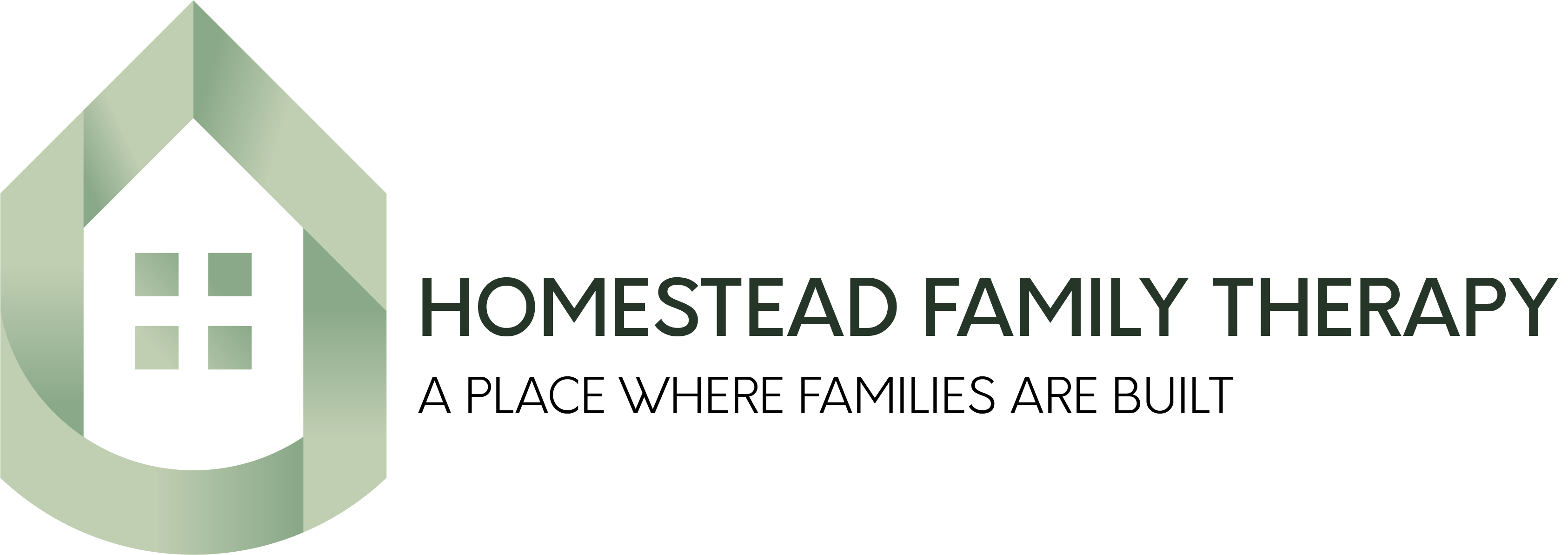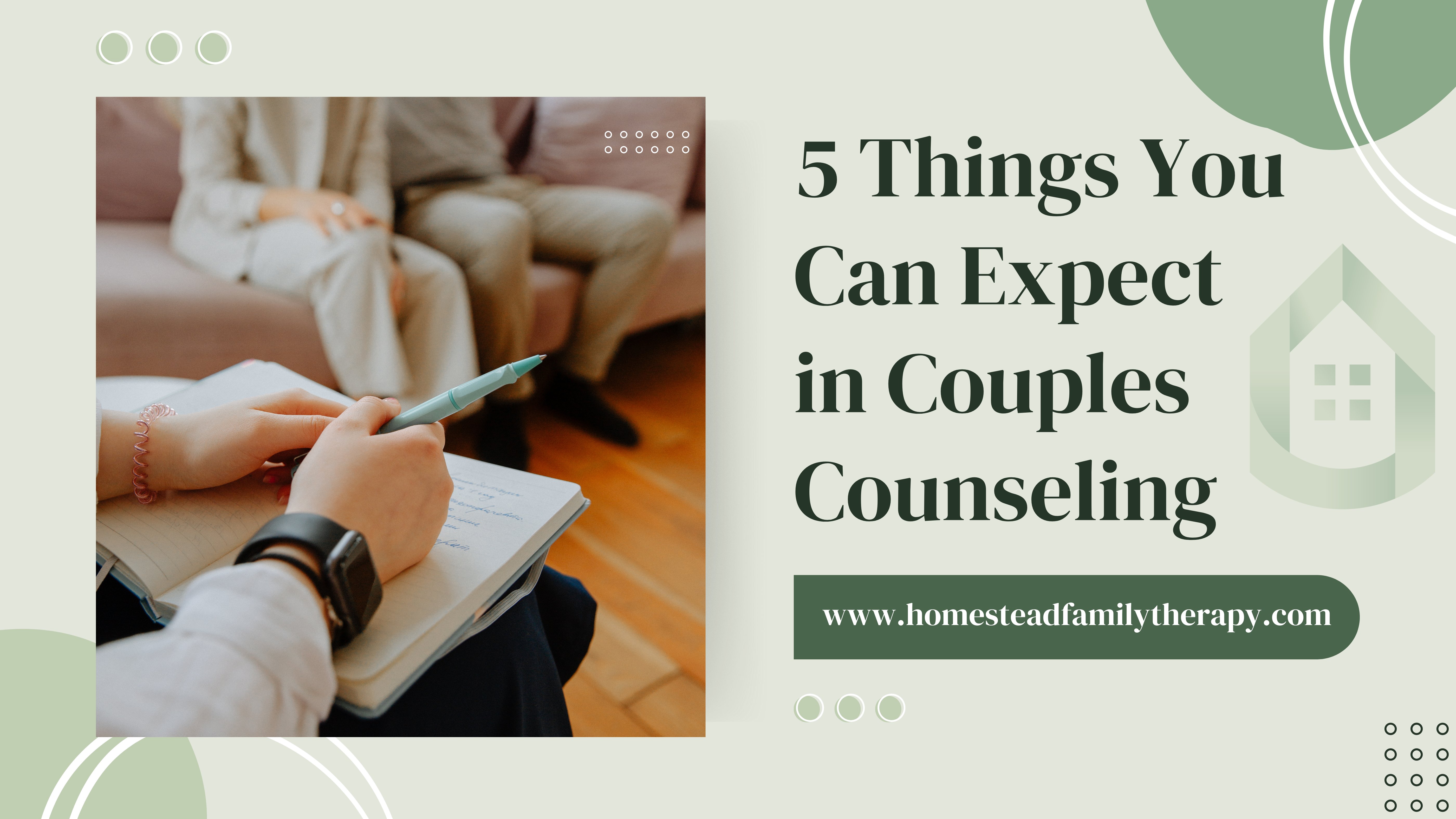I believe two things tend to keep couples from starting couples counseling. First, there is the fear of the unknown; not knowing what will happen in counseling is scary. One thing I always work hard to do in initial counseling sessions is to create an environment that is safe and comfortable for the couple. You don’t go to counseling to talk about how well your life is going. You go to counseling because there are problems. If you don’t know what will happen, how can you prepare for it? Second, change is hard, and often change seems unnecessary, or you feel like changing seems unnecessary. If you’ve ever said, “If my partner would just…” then there is probably room for you to change in the relationship as well. What you want from couples counseling is help with your relationship. This is exactly what your therapist wants, to help your relationship. That’s how we (therapists) often talk about couples counseling, that the relationship is the client. So how do you learn about what you don’t know and gain the self-awareness to change? Couples counseling is a great option to learn about yourself and your partner.
Here are 5 things you can expect in couples counseling:
1. Learn new ways to interact in relationships.
Think about the pattern that exists in your relationship. A stressor happens, maybe the dishwasher doesn’t get loaded. For some reason, it seems every couple has a story about fighting over dishes. One of you gets frustrated, and your partner is clueless. Then you make a simple statement, “You never put your dishes in the dishwasher.” Surprisingly this is met by a defensive rebuttal or deflection. Maybe, “You are always blowing things out of proportion,” or “What are you talking about, didn’t I just unload the dishwasher on Tuesday?”
There are a few rounds of back and forth until someone explodes and says something hurtful. The other person shuts down and the whole situation gets put to the side to be dealt with at a later time, which never seems to come. This is called the “relationship dance” and it’s a picture of how interactions play out in a relationship. In couples counseling, we often learn what the steps are to the couple’s current dance and assess how well the dance is going. Secondly, we look at teaching a new dance with different steps that help the couple reach the outcome they want.
2. Explore you and your partner’s feelings.
Did you know there are 6 core feelings? They are happiness, sadness, fear, anger, disgust, and joy. In counseling, we look at exploring and understanding our feelings. It’s important to listen to your partner to understand what they are feeling and identify what they are saying they need. In counseling you learn how to develop a more robust feelings vocabulary. If you Google how many emotions are there you will see a variety of opinions ranging from 6, 27, 90, etc.
There are primary and secondary emotions and being able to use our words to describe what we are feeling, relating to an event, is helpful for you and your partner to understand and empathize with each other. Furthermore, when you are able to label your feelings it can act as an emotional lid, providing a stopping point for your emotions. Maybe you got frustrated, so you communicate that you are frustrated with your partner and that then helps you and your partner become aware of where you are emotionally. It also helps you to actively regulate your emotions and not move from frustrated to angry.
3. Develop skills to manage conflict.
Every couple fights. This is just a fact and byproduct of being near another person for an extended period. One thing I often tell clients is that it’s okay to fight. I’m more concerned when couples stop fighting. You see, that usually means they stop caring (apathy) or are lying to me in counseling. Now, how we fight is super important. There are lots of resources therapists use and even some rules for “fair fighting.” Maybe the biggest thing to learn about conflict is that the problem is the problem, and my partner isn’t the problem. If you’re simply fighting to win, then everyone will lose.
4. Have vulnerable conversations.
This might be the scariest part. It’s hard to share personal information, especially with a stranger. But the purpose of couples counseling is not to have you share all your deep dark secrets with the therapist. The point is to create a safe place for you to be open and vulnerable with your partner. Vulnerability and communication are vital to a healthy, successful relationship. Having the support of a professional there with you to listen and help protect boundaries is an aid in learning how to add vulnerability to a relationship. Counseling sessions also provide a safe neutral place for you and your partner to practice new skills and ways of interacting with each other. Oh, and yes, it’s going to feel weird and awkward, but everything does the first time.
5. Counseling moves at your pace, not the counselor’s pace.
So how long does couples counseling last? Honestly, as long as it takes to reach the therapeutic goal. Couples counseling can last a few sessions, maybe 8, or go upward of 20 sessions. Pre-marriage counseling is normally 4-8 sessions. However, I think it is beneficial to have about 12 sessions pre-wedding and then 18 sessions post-wedding. There are a lot of changes and challenges when combining two lives into one new family.
The issues a couple is working through will dictate the length of couples counseling. If there is trauma in a person’s past, strong differences in their family of origins (think your nuclear family compared to your partner’s nuclear family), different core beliefs, or a combination of these factors, counseling might take longer to reach the desired goal.
Every counselor works a little differently. There are various styles of couples counseling; some of the top evidence-based models are: Gottman Therapy, Emotion Focused Therapy, and Solution Focused Therapy. Within each of these counseling approaches, you will find these five elements:
- Learning new patterns of interaction in your relationship.
- Exploring and understand each other’s emotions.
- Develop conflict management skills.
- Create space to share hard information.
- Counseling moves at your pace.
I hope this helps answer some of your questions about what happens in couples counseling and if you are considering couples counseling, I hope this article helps you feel a little more comfortable with reaching out for help.
If you enjoyed this post, you may also enjoy 4 Quick Tips To Build Trust In Your Relationship
HELP IS AVAILABLE
If you are struggling to navigate the complexities of marriage, don’t hesitate to get help. Did you know that most couples wait for 7 years before seeking help with a problem? At Homestead Family Therapy, we can provide a unique plan created specifically to meet your relationship needs. We provide services throughout Pennsylvania, including in-person sessions in Gettysburg and East Berlin. We also offer HIPAA-compliant telehealth options statewide.
READY TO BEGIN THERAPY IN PENNSYLVANIA?
Contact Homestead Family Therapy today and learn how we can help support you. Just call (717) 482-1971 or schedule your complimentary consultation online here.

